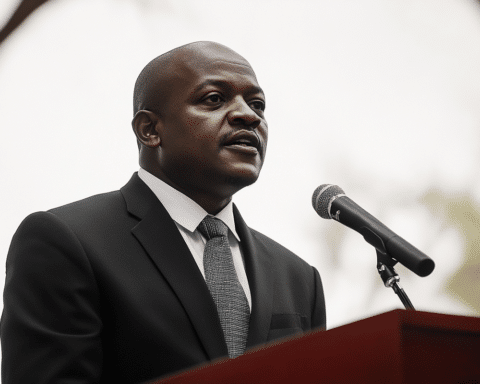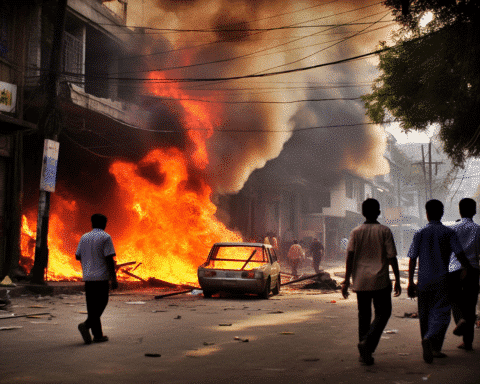Former Pakistani Prime Minister Imran Khan has been sentenced to 10 years in prison for revealing official secrets, just days ahead of crucial parliamentary elections. This latest conviction is one among many legal cases that have left Khan sidelined from active politics. Despite his absence from the ballot, Khan remains a potent political force, thanks to his grassroots following and anti-establishment stance.
Imran Khan, a former cricket star, was ousted from office through a no-confidence vote in 2022. He is currently serving a three-year prison term, with over 150 additional cases pending against him. Khan’s arrest last year led to violent demonstrations, prompting authorities to clamp down on his supporters and party activities, making them hesitant to organize new rallies.
The upcoming parliamentary elections on February 8 come at a sensitive time for Pakistan, which is grappling with a severe economic crisis. Khan’s successor, Shehbaz Sharif, struggled to manage the crisis, resorting to substantial increases in gas and electricity tariffs to secure a bailout from the International Monetary Fund. These measures led to significant price hikes on everyday goods and diminished his party’s popularity.
Khan’s recent conviction is related to the “cipher case,” where he was accused of exposing state secrets by waving a confidential document at a rally. While the document’s contents remain undisclosed, it is believed to contain diplomatic correspondence between the Pakistani ambassador to Washington and the Foreign Ministry in Islamabad.
Imran Khan argued that the document served as evidence of threats against him and claimed his ouster was part of a U.S. conspiracy orchestrated by the military and the Pakistani government. Both American and Pakistani officials have refuted these allegations.
The verdict in the cipher case was delivered by a special court at the prison where Khan is held in Rawalpindi. During the trial, some members of Khan’s legal team were denied access to the court, and journalists were barred from covering the proceedings. Shah Mahmood Qureshi, a senior official in Khan’s party, was also convicted and sentenced to 10 years for allegedly manipulating the contents of the diplomatic cable for political gain.
Khan’s sister, Aleema Khan, criticized the trial, stating that her brother was denied a fair hearing. She also mentioned that prosecutors had sought the death penalty for Khan and that the verdict appeared to be rushed. Despite these challenges, Khan’s party plans to appeal the conviction before the Islamabad High Court.
Imran Khan has consistently maintained his innocence, asserting that he did not disclose the precise contents of the cable. His party, Pakistan Tehreek-e-Insaf (PTI), stands by him and has denounced the proceedings as a “sham trial.” PTI has called on its supporters to remain peaceful and refrain from resorting to violence.
Analysts predict that turnout in the upcoming election may be low due to Khan’s absence, as he was the charismatic leader who attracted the masses. Pakistan’s human rights commission has expressed concerns about the fairness of the parliamentary election, particularly due to the rejection of many candidates from Khan’s party.
Despite the challenges, PTI remains committed to its political cause and aims to secure victory “with a thumping majority” in the forthcoming election. The unfolding political landscape in Pakistan will undoubtedly be closely watched as the nation grapples with a turbulent political climate and economic uncertainty.




